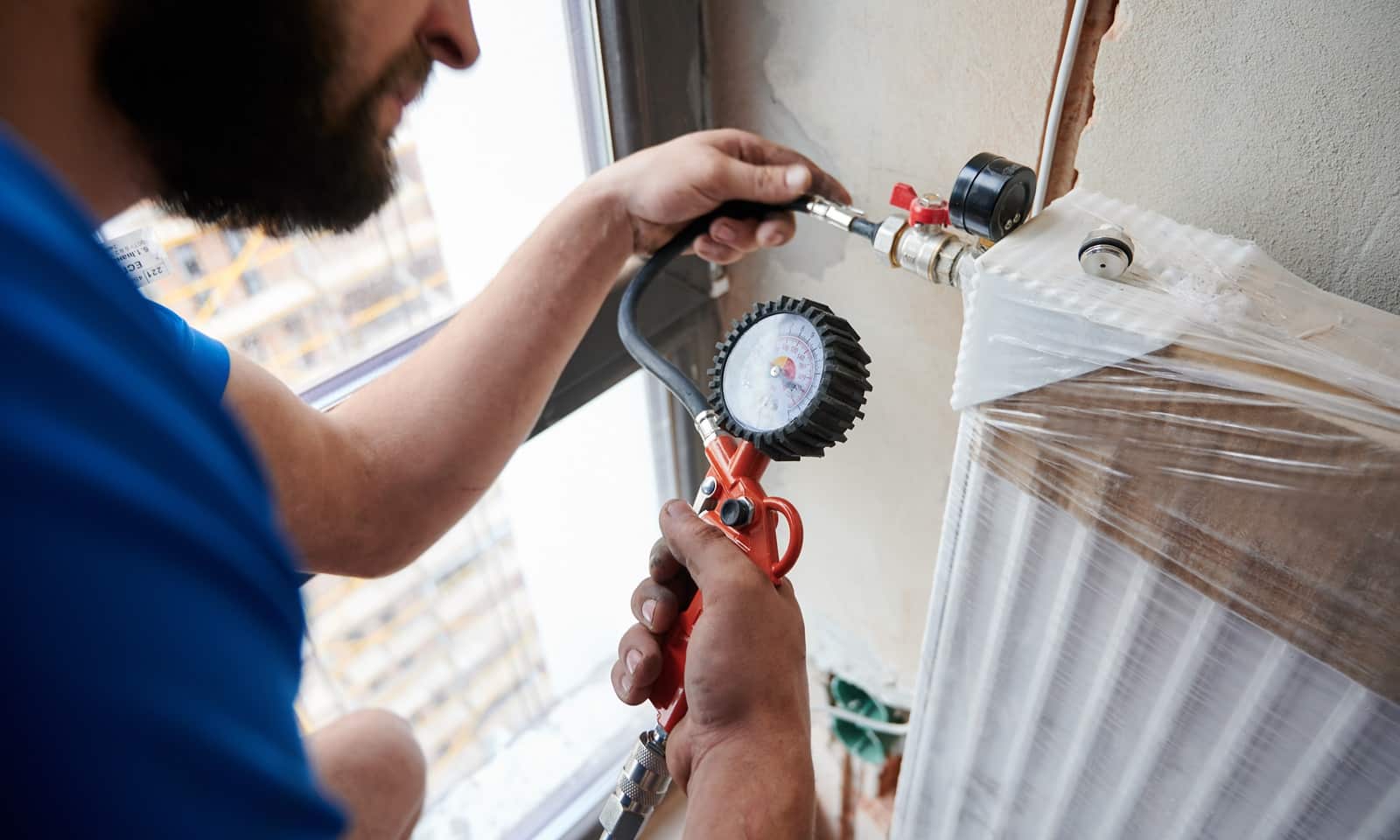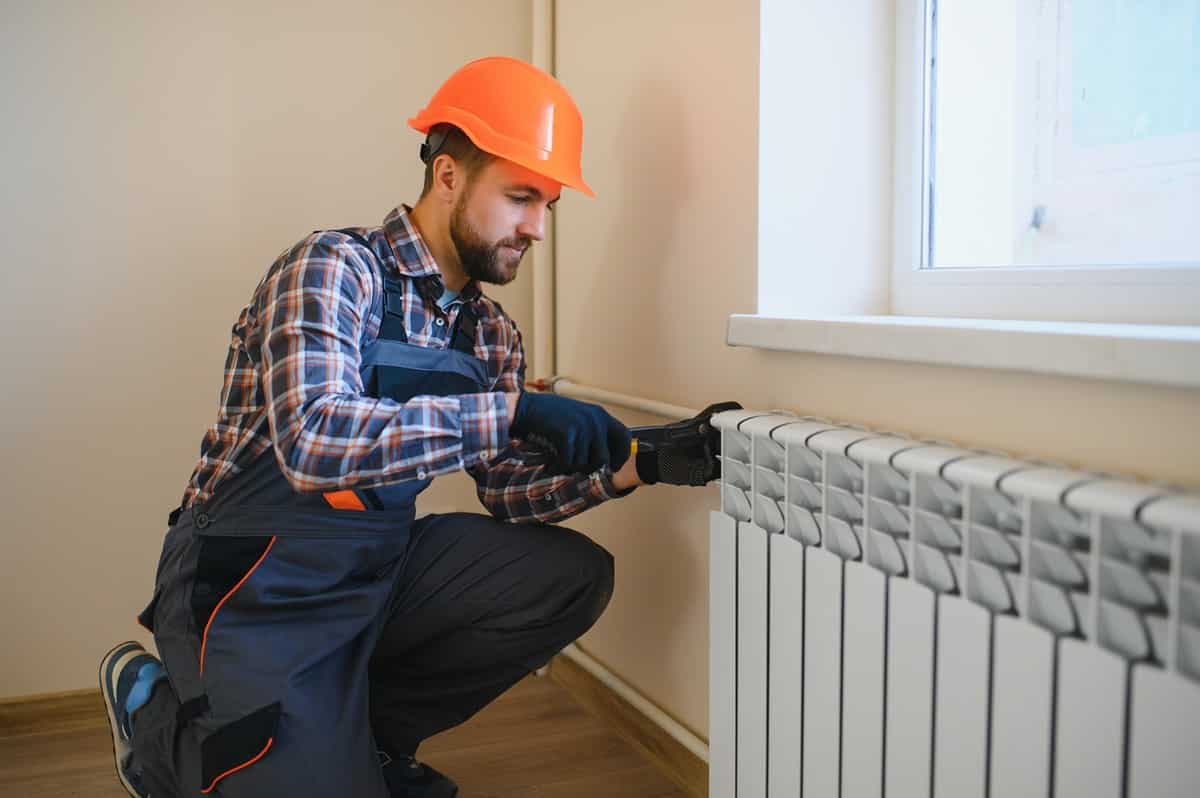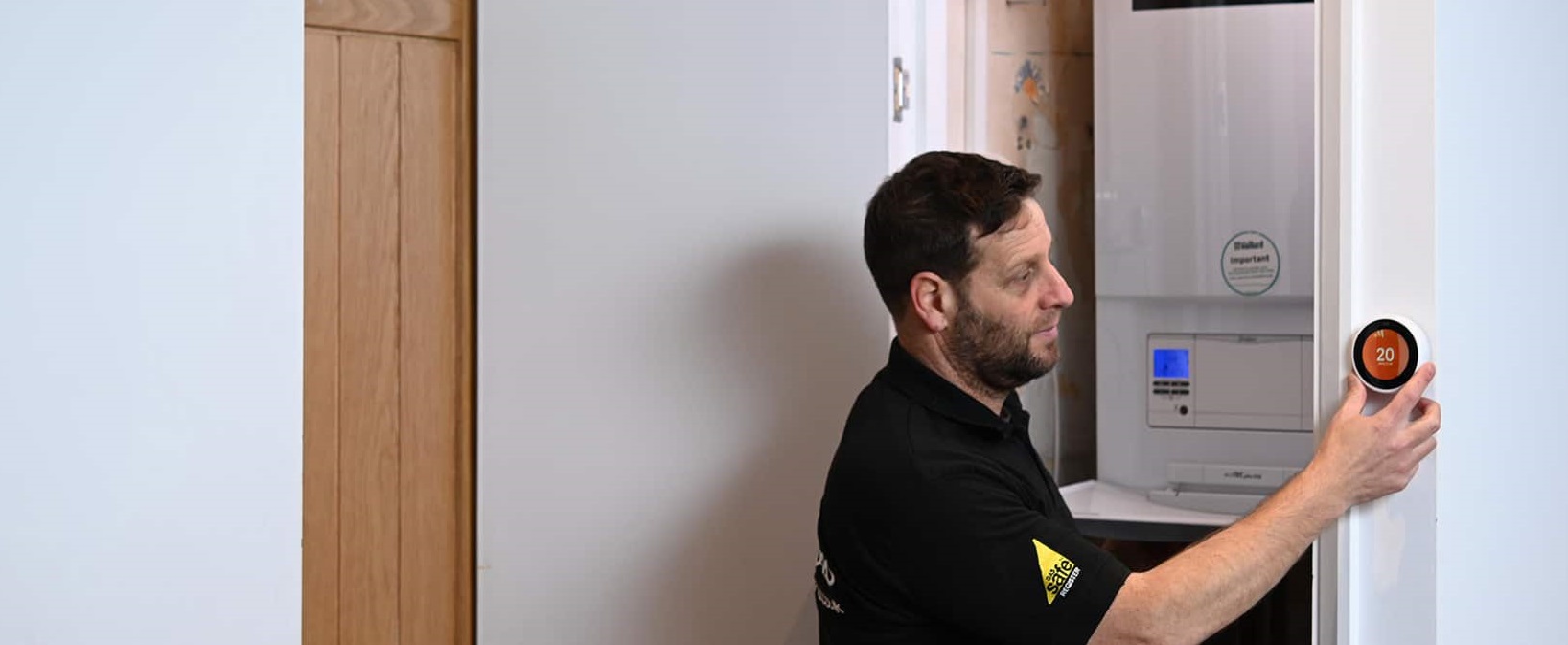 Your Go-To Guide for Landlord Gas & Electrical Safety
Your Go-To Guide for Landlord Gas & Electrical Safety

Have you ever paused to consider the hidden perils that might be skulking around your leased home? It’s not just the creaky floorboards or that flickering light in the hallway. We’re talking about something far more sinister, and it goes by two names: gas and electrical safety. These invisible threats can turn a landlord’s dream investment into their worst nightmare.
Last year alone, thousands of properties across the UK were flagged for non-compliance with gas safety regulations. But here’s where it gets interesting – regular checks could have prevented these issues entirely. Electrical hazards are no less forgiving; they play by their own rules but share one thing in common: an appetite for disruption.
The kicker? Many landlords remain blissfully unaware until disaster strikes. And strike it does, turning once peaceful homes into scenes straight out of a cautionary tale.
Table of Contents:
- Understanding Gas and Electrical Safety in Your Rental Property
- Carbon Monoxide Poisoning: Prevention and Detection
- Ensuring Appliance Safety in Rental Properties
- The Importance of Hiring Qualified Professionals
- Fire Safety Measures for Landlords
- Responding to Gas Emergencies
- Conclusion
Understanding Gas and Electrical Safety in Your Rental Property
Being a property owner, it falls on your shoulders to ensure the well-being of those residing in your spaces. And that means making sure your rental property is up to code when it comes to gas safety and electrical safety.
Ignore these regulations at your peril. Gas-related accidents were avoided in over 68,000 homes in the UK due to strict compliance with gas safety regulations. And approximately 57% of homes inspected had one or more faulty gas appliances during annual inspections.
The Role of Gas Safety Checks
Regular gas safety checks are critical. They ensure appliances are in working order and compliant with regulations.
As a landlord, you’re legally required to have all gas appliances and flues checked annually by a qualified Gas Safe registered engineer. This includes things like boilers, gas fires, and gas cookers.
Electrical Safety Standards for Rental Properties
Electricity can be just as dangerous as gas if not properly maintained. That’s why there are strict regulations governing the safe use of electricity in homes, like The Electricity at Work Regulations 1989.
As a landlord, you must ensure that all electrical appliances and the electrical system are safe and in good working order. This includes regular safety checks by a qualified electrician.
Don’t skimp on safety. The consequences could be deadly. Keep your renters and property secure by diligently following gas and electrical safety norms.
Carbon Monoxide Poisoning: Prevention and Detection
Carbon monoxide is a silent killer. You can’t see it, smell it, or taste it. But it’s there, lurking in the shadows, waiting to strike.
The only way to detect this deadly gas is with a proper CO detector. Without one, you’re flying blind.
Every year, over 400 Americans die from unintentional CO poisoning. Don’t be a statistic.
Installing Audible Carbon Monoxide Alarms
Your first line of defence against carbon monoxide poisoning is an audible carbon monoxide alarm. These lifesaving devices continuously monitor the air, ready to alert you at the first sign of danger.
Install one on every level of your home, including the basement. Put them near sleeping areas so the alarm can wake you if it detects carbon monoxide.
But just having an alarm isn’t enough. Ensuring its functionality is crucial. Test your alarms every month and replace them every 5-7 years.
Don’t gamble with your safety. Invest in a quality, battery-operated or battery back-up CO detector. Investing in this could turn out to be the wisest expenditure you’ve ever made.
The symptoms of carbon monoxide poisoning can be subtle at first. Headache, dizziness, weakness, upset stomach, vomiting, chest pain, and confusion.
If you suspect carbon monoxide poisoning, get outside to fresh air immediately. Then call 911 or go to the hospital right away.
Don’t take chances with this invisible menace. Be proactive. Install audible carbon monoxide alarms and know the warning signs. Your life could depend on it.
Ensuring Appliance Safety in Rental Properties
As a landlord, you’re responsible for the safety of your tenants. That means making sure all gas and electrical appliances in your rental properties are up to code and in good working order.
Ensuring the safety of your tenants goes beyond merely dodging legal complications. It’s about protecting lives.
The Dangers of Faulty Appliances
Inadequate gas apparatuses might precipitate lethal methane escapes and, in dire circumstances, detonations. Electric appliances with frayed wires or loose connections can spark fires.
In fact, a recent study found that 1 in every 6 homes inspected had at least one appliance that could potentially cause a serious gas accident. That’s a scary statistic.
So what can you do to ensure appliance safety in your rental properties?
- Schedule regular maintenance checks for all gas and electrical appliances
- Replace old or damaged appliances promptly
- Use only certified professionals for installations and repairs
- Educate your tenants on proper appliance use and safety precautions
Don’t wait until it’s too late. Prioritize teaching your renters how to safely use their appliances before a mishap occurs. The safety of your tenants might hinge on the attention you give to appliance maintenance.
The Importance of Hiring Qualified Professionals
When it comes to gas and electrical systems, safety is non-negotiable. Ensuring your systems are correctly installed and maintained demands the expertise of certified professionals.
Trying to DIY or hiring an unqualified handyman might save a few bucks upfront. But it’s not worth the risk of faulty installations, gas leaks, or electrical fires.
Ensuring tenant safety falls squarely on your shoulders as the property owner, highlighting the importance of not cutting corners when it comes to maintenance and repairs. Skimping on proper professionals is a liability waiting to happen.
Registered engineers have the training and expertise to do the job right. Adhering to rigorous safety protocols and implementing top-tier industry methods, they ensure everything is up to snuff.
Don’t gamble with the well-being of your tenants and your property. Always hire registered engineers for gas and electrical work.
Choosing a Gas Safe Registered Engineer
When it comes to gas appliances, you need a Gas Safe registered engineer. This is non-negotiable.
The Gas Safe Register is the official list of qualified gas engineers in the UK. It’s illegal for anyone not on this register to work on gas appliances.
To find a registered engineer, check the Gas Safe Register website. You can search by location, appliance type, and more.
When the engineer arrives, always ask to see their Gas Safe ID card. Check that it’s valid and that they’re qualified for the specific work you need.
A registered engineer will do a thorough job. They’ll check that your gas appliances are safe, compliant, and working efficiently.
They’ll also provide you with a Gas Safety Record. Ensuring your appliances have been inspected and are secure is not just a legal obligation but also a testament to their safety.
Don’t risk the safety of your tenants by using an unregistered engineer. Always choose a Gas Safe Registered professional.
Key Takeaway:
Always hire registered professionals for gas and electrical work to keep your tenants safe. Skipping this can lead to serious risks like gas leaks or fires.
Fire Safety Measures for Landlords
It’s not just a good idea – it’s the law.
Being ahead of the game by taking early action is your safest bet against fire outbreaks. Here are some fire prevention strategies you can implement today:
- Install smoke alarms on every level of your rental property, including inside and outside sleeping areas.
- Test smoke alarms monthly and replace batteries at least once a year.
- Provide fire extinguishers in easily accessible locations, such as the kitchen and near exits.
- Inform residents about fire prevention measures, demonstrating the proper operation of a fire extinguisher and actions to take during a blaze.
- Keep hallways, stairways, and exits clear of clutter and obstacles.
- Regularly inspect electrical wiring and appliances for signs of wear or damage.
- Ensure that all gas appliances are properly installed and maintained by a Gas Safe registered engineer.
Regular Maintenance Checks
Routine inspections are crucial for preventing fires caused by electrical faults or gas leaks. As a landlord, you should schedule regular maintenance checks to ensure that your rental property is safe and up to code.
During these inspections, a qualified professional will check for:
- Frayed or damaged electrical wiring.
- Overloaded electrical outlets or circuits.
- Faulty or outdated appliances.
- Gas leaks or improper ventilation.
- Blocked or damaged chimneys or flues.
According to the UK government, landlords are required by law to install smoke alarms on every storey of their rental property and carbon monoxide alarms in any room with a solid fuel-burning appliance.
Don’t wait until it’s too late – make fire safety a top priority in your rental property. Implementing these straightforward measures and routinely performing upkeep inspections can be pivotal in averting fires, ensuring the well-being of your occupants.
Key Takeaway:
Keep your tenants safe and meet legal requirements by installing smoke alarms, providing fire extinguishers, and conducting regular maintenance checks for electrical wiring and gas appliances. Educate tenants on fire safety to prevent hazards.
Responding to Gas Emergencies
And that includes knowing how to respond to a gas emergency.
Gas leaks are no joke. Gas leaks could lead to flames, detonations, or the silent threat of carbon monoxide contamination. So if you suspect a gas leak, you need to act fast.
Here’s what you should do:
- Evacuate the property immediately. Get everyone out, including pets.
- Don’t turn on or off any electrical switches. And don’t use your phone inside the property.
- Call the national gas emergency number: 0800 111 999. They’ll send someone out to investigate.
- If you can, turn off the gas at the meter. But only do this if it’s safe to do so.
- Open all the doors and windows to ventilate the property.
- Wait for the gas emergency service to arrive. Don’t go back inside until they give you the all-clear.
It’s a good idea to have a plan in place for gas emergencies. Make sure your tenants know what to do and who to call. And consider installing a carbon monoxide alarm for added protection.
Keep in mind, the peril of gas leaks cannot be overstated. So don’t take any chances. If you smell gas or suspect a leak, get out and call for help right away.
As a landlord, it’s also your responsibility to make sure all gas appliances are in good working order. That means getting them checked by a Gas Safe registered engineer every year.
And if you’re installing new appliances, make sure they’re fitted by a qualified professional. Don’t try to do it yourself.
Gas safety is no joke. But by being prepared and knowing what to do in an emergency, you can keep your tenants safe and sound.
Key Takeaway:
Landlords, keep your tenants safe from gas dangers. Evacuate if you smell gas, call 0800 111 999, and don’t risk it with DIY fixes. Annual checks by a pro are a must.
Conclusion
So, there you have it. The hidden dangers of gas and electrical safety in rental properties aren’t so hidden anymore. We’ve journeyed through the maze of regulations, unravelled the mysteries behind carbon monoxide poisoning, shone a light on appliance safety, underscored the importance of hiring qualified professionals, highlighted fire prevention measures and laid out how to respond to gas emergencies.
But let’s not paint a picture darker than necessary. Remember those thousands of homes flagged for non-compliance? They serve as a reminder that knowledge is power – your shield against potential disasters waiting in the shadows. This isn’t about scaremongering; it’s about empowerment through awareness.
The truth is simple: regular checks and an eagle eye can turn your property from a ticking time bomb into a safe haven. It shows us that although unseen threats loom large, they’re no match for diligent landlords armed with information and commitment.
Far from being a mere pamphlet, this manual serves as your shield and sword in the epic battle against the unseen adversaries of gas and electrical dangers that stealthily prowl within the realms of your cherished investment utopia. So stand tall knowing you’re now equipped to protect what matters most – turning those cautionary tales into success stories one check at a time.


